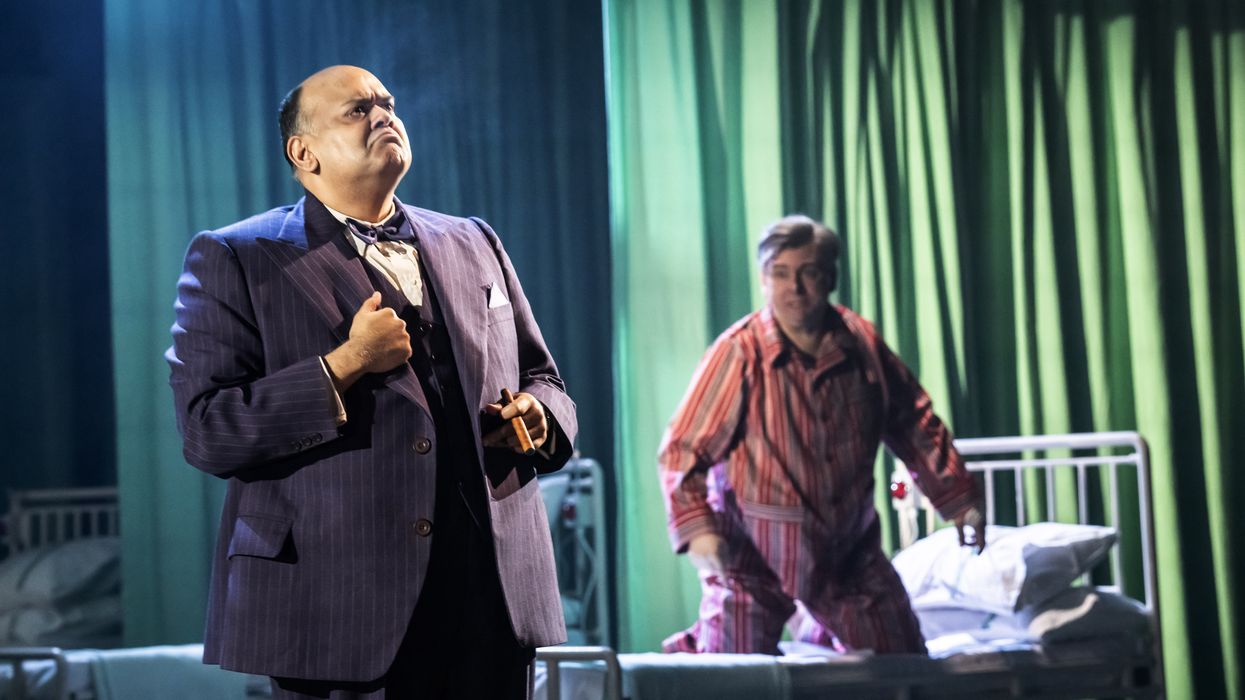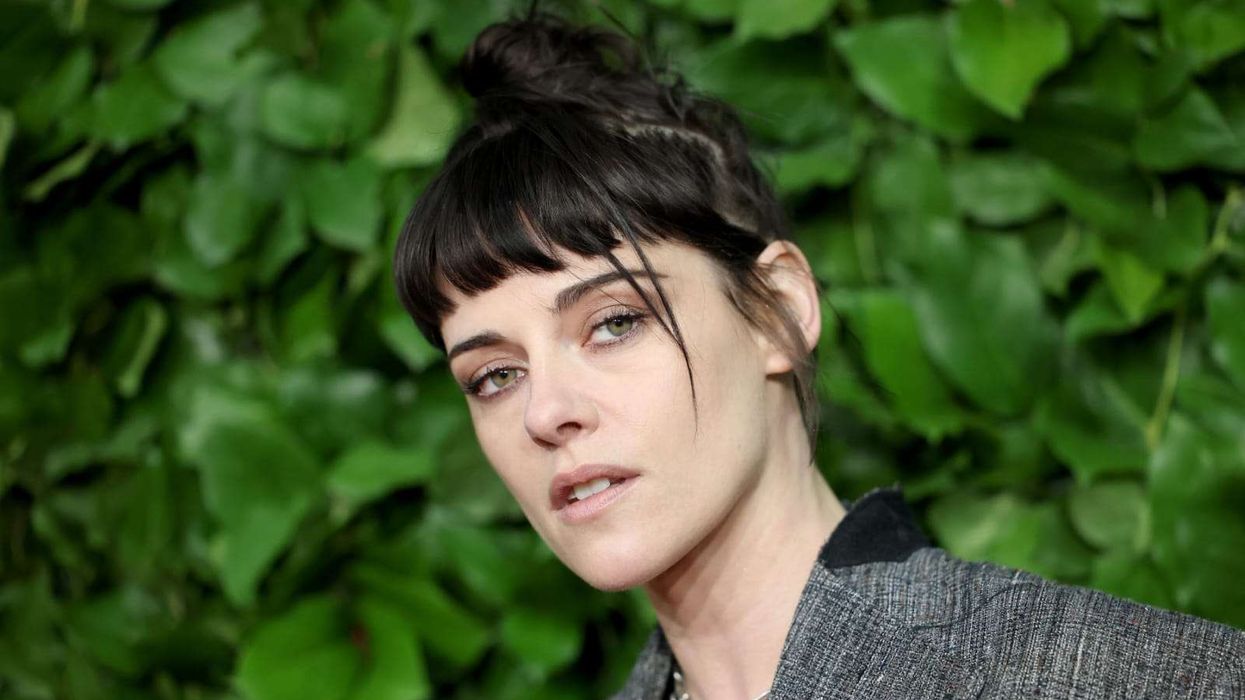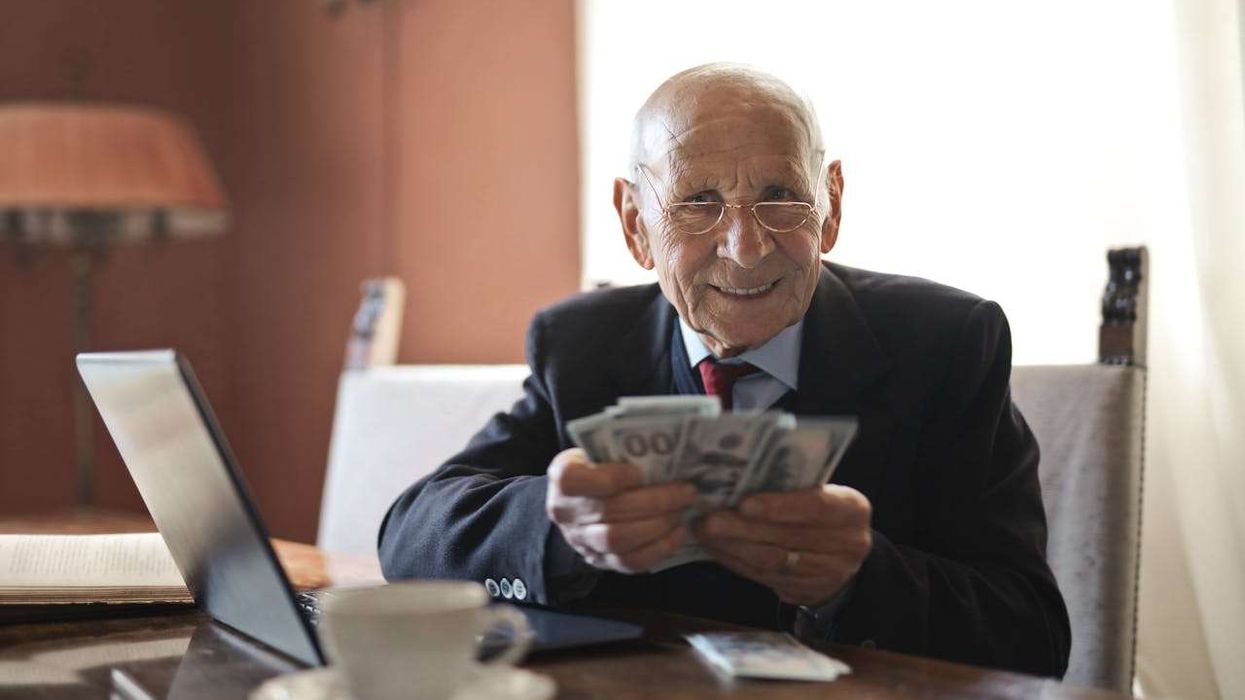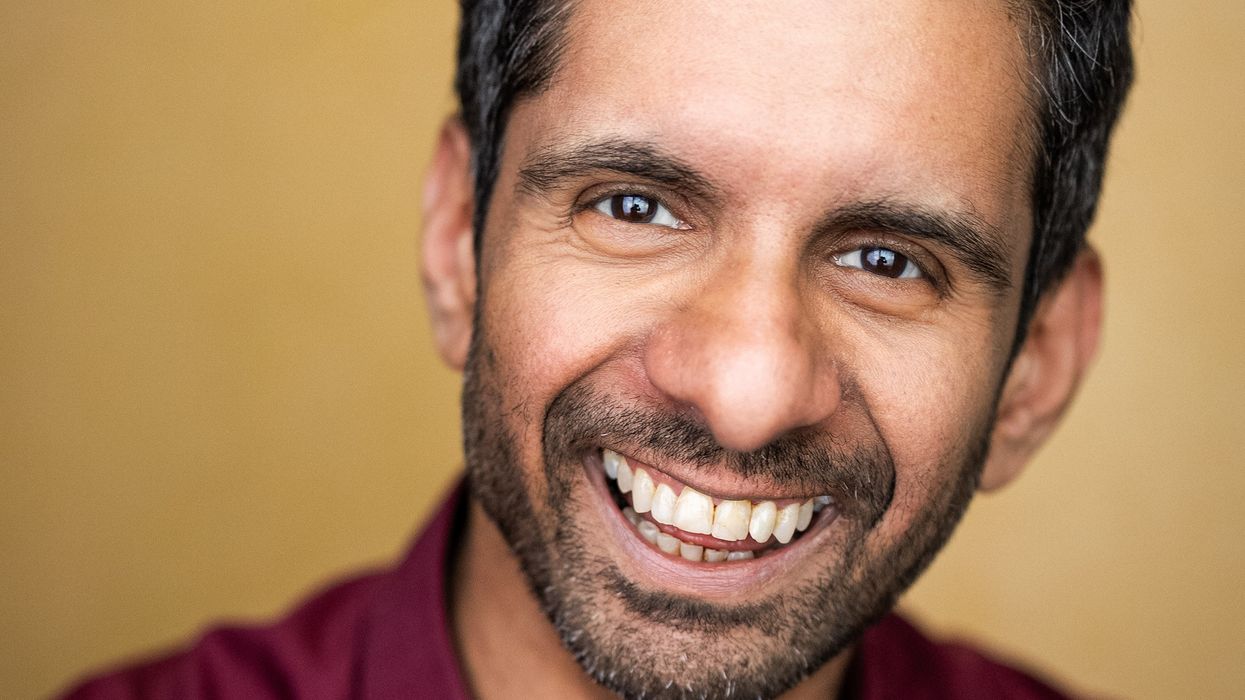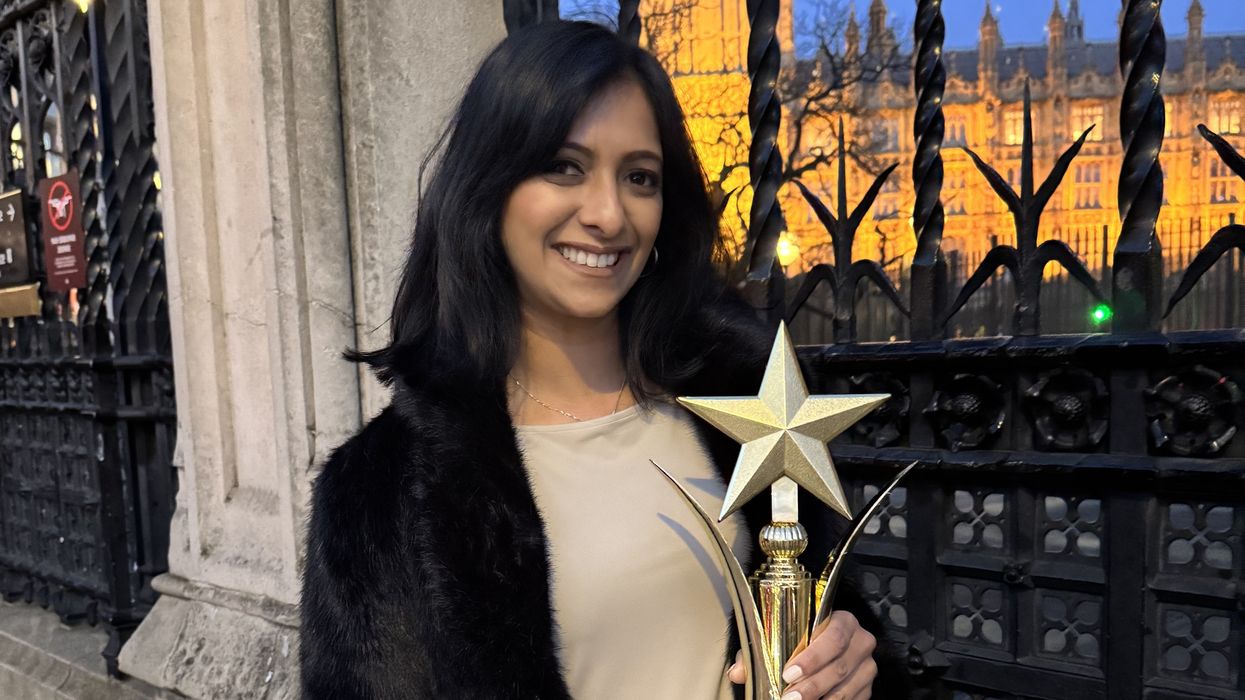FOR Eastern Eye readers, there is a choice of two plays at the National Theatre – the return of Tim Price’s Nye, on the founding of the NHS, or Shaan Sahota’s debut with The Estate, a rumbustious Punjabi affair about an aspirational Sikh politician whose two sisters demand an equal share of their late father’s inheritance.
Maybe the answer is to try and see both.
On the way to catch Nye in the Olivier Theatre, the thought occurred to me that if there is one country in the world that really needs a National Health Service where people will be treated “based on their clinical need and not on their ability to pay”, it is India. My younger brother, who came with me, told me a horror story of a wife who couldn’t get her husband’s body from a Kolkata hospital unless she paid cash up front. And I recall one of my maternal uncles, who was covered by a generous Indian Oil Corporation insurance, was admitted with a relatively simple leg ailment, only to be pushed into intensive care and have various tests done at vast expense. Alas, he didn’t survive the treatment. Most private doctors demand cash for obvious reasons. India does have some of the best doctors and hospitals in the world, but it is the poor who require something like the NHS in the UK.
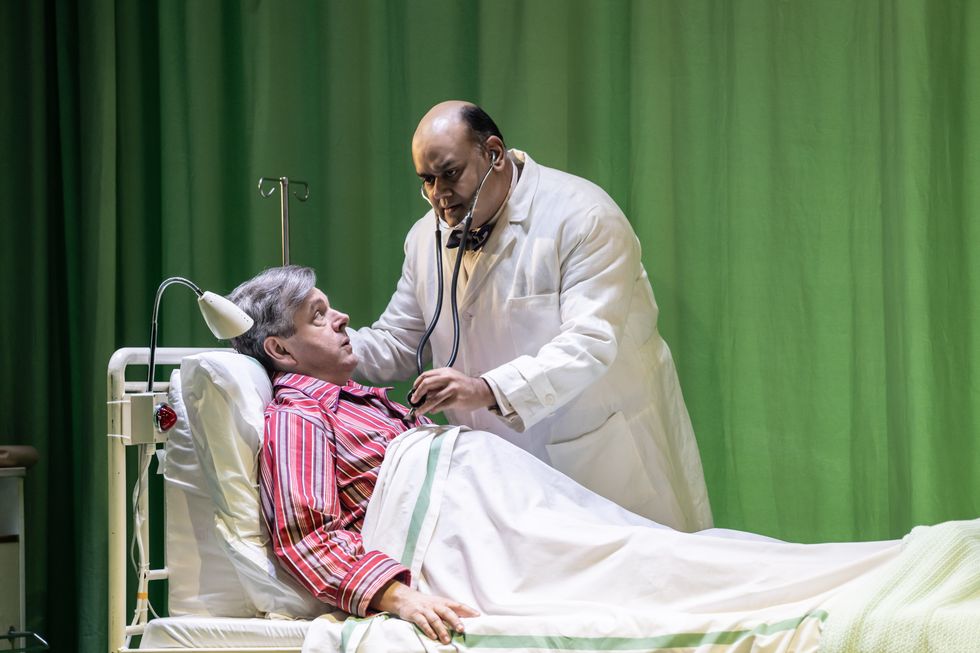
Nye is an utterly brilliant play which tells us of the battles Aneurin (“Nye”) Bevan fought with both Tory and Labour politicians, the opposition leader Winston Churchill (he lost the 1945 general election) and the doctors themselves in establishing the NHS on 5 July 1948.
It is a stirring moment when Nye (Michael Sheen) declares: “Join me and take the most civilised step any country has ever taken and together we will build the greatest health service the world has ever taken.”
He does add: “We shall never have all we need. Expectation will always exceed capacity…..the service must always be changing, growing and improving; it must always appear imperfect.”
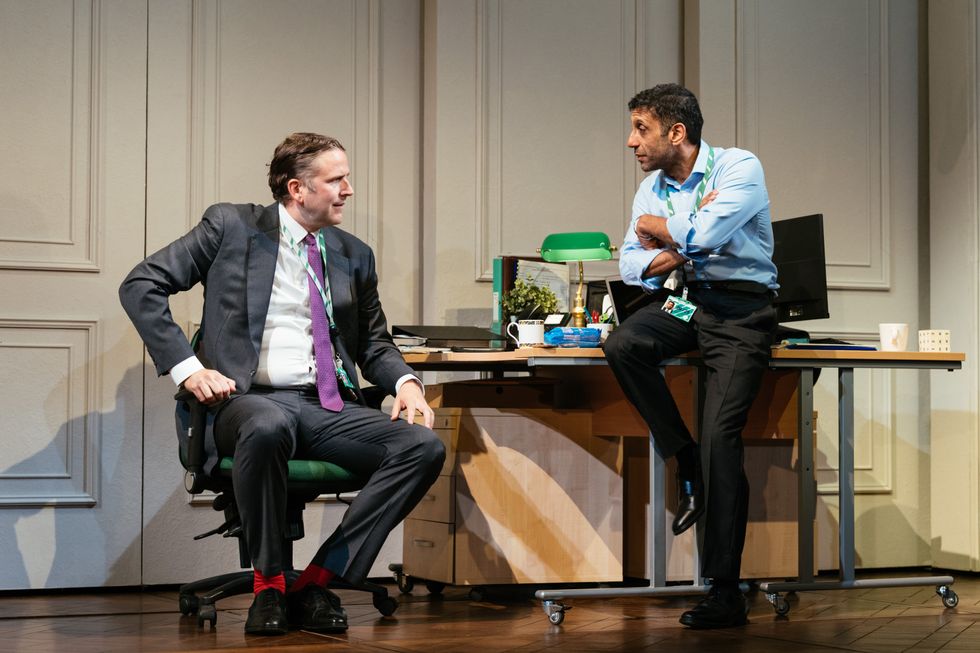
I would see the play, directed by Rufus Norris, just for the clash between Nye and Churchill, played superbly once again by the excellent Tony Jayewardene, who doubles up as Dr Dain.
For a British Asian actor to pay Churchill of all people is, I think, a watershed moment. “My dear fellow, have a cigar and a brandy,” the great man might well say to Jayewardene if he were somehow to slip into the audience one night.
Incidentally, Jayewardene told me: “My parents were both born and raised in Sri Lanka. They got married in 1970 when my father was 26 and my mother was 19. My father is a doctor and emigrated here in 1970 to do his higher qualifications to become a registrar and then a consultant. By that time my brother and I were both born but the civil war in Sri Lanka had also started so my parents made the decision to raise us here, especially as the war was affecting education in Sri Lanka. We lived most of my life in north London where my father still lives in the family home. My mother passed away in 2016.”
It has become fashionable for politicians these days to say that the NHS is broken. The return of Nye couldn’t be more timely since resident doctors (previously called junior doctors) threatened to go on strike for five days in pursuit of a 28.9 per cent pay claim. And the health secretary Wes Streeting has condemned the NHS for its alleged “racist” treatment of pregnant ethnic minority women. It is easy for people to forget what Britain was like the NHS.
Appointed minister for health and housing by Clement Attlee (Stephanie Jacob), the new Labour prime minister, Nye hears of harrowing stories from no fewer than 20 patients.
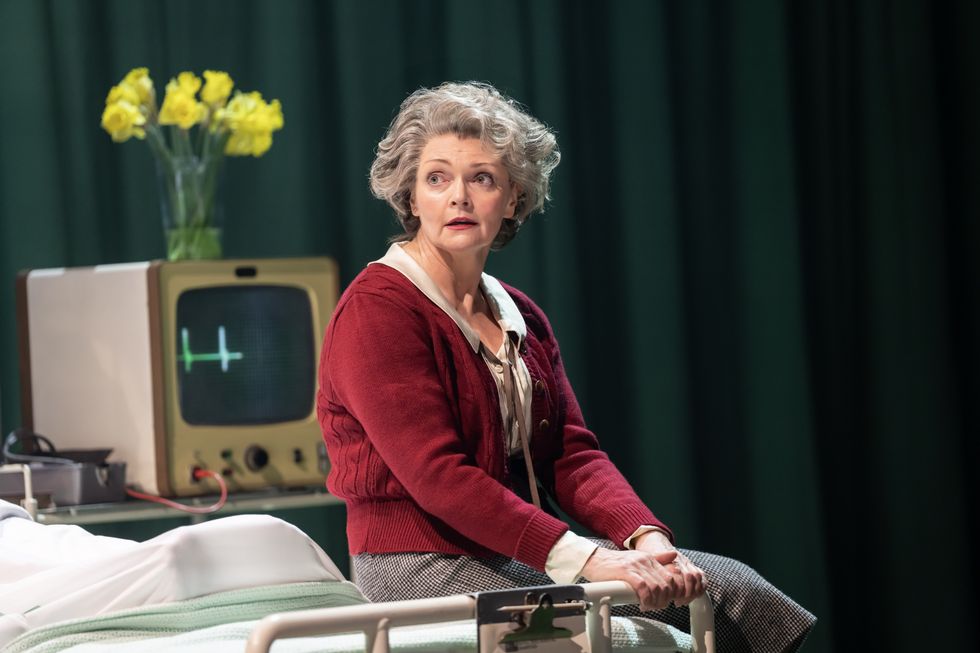
They range from, “help us, minister, my baby has TB, but they forgot to put the legs of her cot in tins of oil to stop the cockroaches climbing up. A cockroach has got into my baby’s cot, and now my baby is deaf,” to “I broke my wrist, and the doctor can repair it but I can’t afford the anaesthetic for the operation”, “There’s no cancer specialist in my town so I have to travel five hours for an appointment”,
“The almoner says I have to pay two shillings for my radium, but I don’t have that money; if I don’t pay she’s going to stop my treatment”, and “Our GP looks after 18,000 patients. How are we meant to get an appointment?”
Nye’s heroic story is told in flashback as he lies dying at the Royal Free, an NHS hospital in North London, in 1960.
By his side is his wife, Jennie Lee (Sharon Small). There are references to Nye’s time in Delhi and sipping champagne with Nehru.
Nye’s final words are delivered as a small boy to his father, David Bevan (Rhodri Meilir), a coal miner who died of “black lung”: “Dad. Did I…Did I look after everyone?”
A message put up on screen at the end of the play says: “Within 10 years of the NHS being launched infant mortality fell by 50 per cent. Since its founding, life expectancy has increased by 12 years.”
Meanwhile, The Estate is on in the newly refurbished Dorfman Theatre where it is Sahota’s good fortune to have the accomplished Adeel Akhtar in the lead role of Angad Singh. One half of the play deals with the parliamentary estate where Angad (educated Harrow and New College, Oxford), the shadow environment secretary, is a rising star. It has faint touches of Yes Minister, especially in Angad’s dealings with the chief whip, Ralph (Humphrey Kerr), as the British Asian politician decides to run for party leader. There are echoes, too, of David Cameron’s alleged (and unsubstantiated) initiation ceremony with a pig’s head. Ralph, with his great height, also plays it a little like John Cleese in Fawlty Towers.
The other half of the play is about what happens when Angad’s traditional Sikh father – a baggage handler turned dodgy property dealer – dies leaving his entire estate to his son, cutting out his daughters, Gyan (Thusitha Jayasundera) and Malicka (Shelley Conn). The two women attempt to derail their brother’s leadership bid when Angad decides ultimately not to share the inheritance equally.
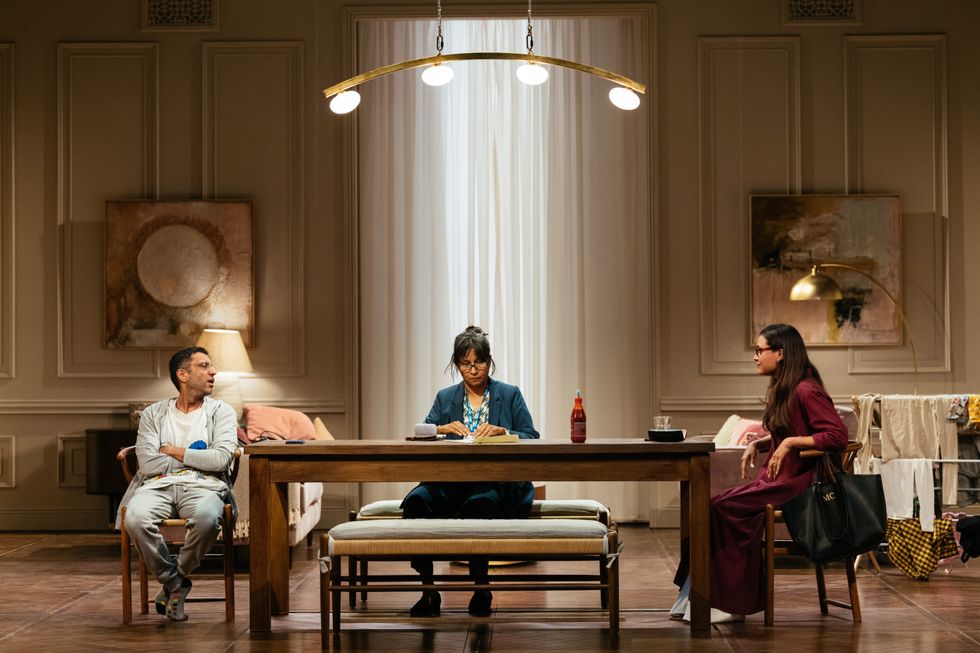
Asked by his wife Sangeeta (Dinita Gohill), “What would your dad say?”, Angad’s justification for reneging on his initial promise to share the money equally with his sisters is, “Dad would say, if I didn’t put it in writing then it didn’t happen.”
The Estate is directed by Daniel Raggett, with music by Ranjit Singh, Sewa Singh and Surinder Singh, especially in the evocative gurdwara funeral scenes.
On balance, I think I preferred the political aspects of Angad’s attempts to climb the greasy poll. He blackmails Ralph into dropping his support for the rival candidate, Edward Dobson, by reminding the chief whip of his disgusting practices with biscuits at school.
A well-known Asian woman playwright came out and summed up the character of Angad: “What a s**t!”
On the evidence of The Estate, Sahota, who read history and modern languages at Oxford followed by medicine at Cambridge and is now a “writer and doctor from Southall”, shows talent for writing political comedy.
Nye and The Estate are at the National Theatre until August 16 and August 23, respectively.
